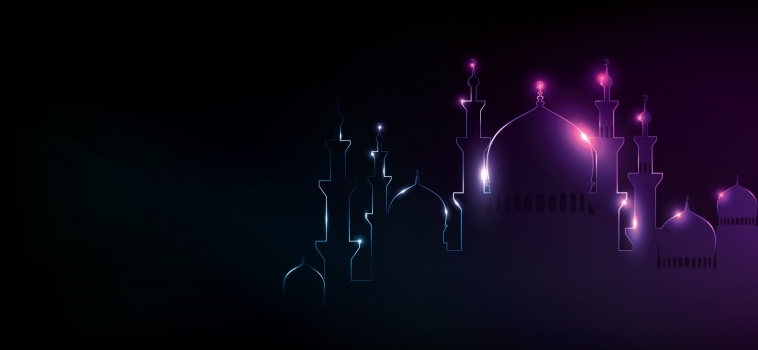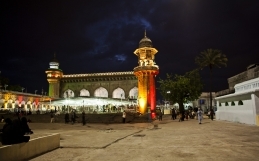The Prophet (ﷺ) said, “Look for (the Night of Qadr).”
[Sahih al-Bukhari, Book 32, Hadith 6]
The last ten days of Ramadan are here. The blessed month flew by as quickly as it had entered upon our lives. All we have left now are the nights of seeking Laylatul Qadr, the most auspicious night of the year, where the single night is equaled to a thousand months. Acts of worship on that one night is counted as acts of worship done for thousand months, which is approximately a little over eighty-three years. Eighty-three years of constant worship in a constant state of eemaan is not possible to achieve when spread over our lives. Yet, it is possible if we catch the Night of Decree, insha Allah.
I had always wondered why there was no specific date mentioned for Laylatul Qadr in the Qur’an or Sunnah.
Ibn Umar (Allah be pleased with them) reported Allah’s Messenger (ﷺ) as saying: “He who is anxious to seek it (Lalat-ul-Qadr) should seek it in the last ten (nights of Ramadan).”
[Sahih Muslim, Book 13, Hadith 272]
In the Qur’an and Sunnah, Allah has mentioned specific traits that are beloved to Him (like sabr, shukr, tawakkul) and specific days that are prosperous for us (like Ashoorah, Yawm at-Tashreeq, Ayyaam al-Beed). Why then, has He not mentioned the exact night for when the Laylatul Qadr would fall?
Was it because then we would restrict ourselves to full-on ‘ibaadah only on that day? If so, wasn’t that good? Don’t get me wrong, but imagine the world when the whole of that one night is immersed in praising Allah and seeking His Help, Mercy, and Forgiveness. Wouldn’t that be a powerful phenomenon? It would, right?
But the more I thought, the more I realized that, as for everything that happens in our lives and for every speck that moves on the earth and the heavens, Allah has proportioned things to happen the way it happens for a reason. And I believe, that when His creation spends the last ten nights seeking the Night of Decree, then His slave gets that much closer to Allah, as it is spread over the last ten nights. That would mean, ten full nights of the ummah seeking nearness to Him.
One of the oft-repeated du’as we are encouraged to ask during the last ten nights of Ramadan is for the du’a of forgiveness.
It was narrated from ‘Aishah that she said: “O Messenger of Allah, what do you think I should say in my supplication, if I come upon Laylatul-Qadr?” He (ﷺ) said: “Say: ‘Allahumma innaka ‘afuwwun tuhibbul-‘afwa, fa’fu ‘anni (O Allah, You are Forgiving and love forgiveness, so forgive me).’”
[Sunan Ibn Majah, Book 34, Hadith 24]
Imagine, the whole of the ummah asking for forgiveness using His Blessed Name of Al-‘Afuww, The Pardoner, during the last ten nights of Ramadan. Now, that is what you call phenomenal! SubhanAllah. May Allah forgive all our sins and the sins of the ummah, and grant us entry into Jannatul Firdaws. Allahumma Aameen ya Rabb.
Download Seeking Laylatul Qadr Tracker here: Seeking Laylatul Qadr Tracker
Author Bio:
Umm Afraz Muhammed, an Indian mother-of-3 settled in the Emirates, is a Psychology graduate and a student of Master of Arts in Islamic Studies. She is an author to fiction and non-fiction books, a graphic designer, and is the Redefined Muslimah Coach where she assists Muslim women in bringing acceptance and clarity into their lives while maintaining the teachings of Islam. You can catch her reviewing books and blogging at https://ummafrazblog.wordpress.com






The favored Laylatul Qadr can be found in any of the most recent 10 evenings of Ramadan, which are the most honored nights of the year. As such, we should increase our worship and devotion during this period.